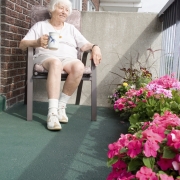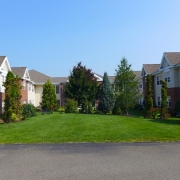Questions You Should Ask An Alzheimer’s Facility
Alzheimer’s disease is affecting more Americans every day. In fact, the cost of treating the disease is expected to balloon to $1 trillion by 2050. But for the families of individuals suffering from this progressive disorder, one thing will always be the most important: the right facility for Alzheimer’s patients.
There are many facilities for Alzheimer’s across the country. But if you want to make the best choice for your loved one, here are some of the questions that you should ask first:
What is the Monthly Rate for Housing and Care?
It’s no secret that memory care is costly. In 2016 alone, the Alzheimer’s Association reported that the cost of treating the disease reached a staggering $236 billion.
Because patients will need to stay in facilities for Alzheimer’s for an extended period of time, the cost may become a burden to the family at some point. This is why it’s very important to ask for the monthly rate first to know if you can afford the cost even with the help of insurance and Medicare.
What Type of Specialized Care does the Facility Provide?
Different facilities for Alzheimer’s offer different levels of care for patients. This is due to the fact that individuals with Alzheimer’s disease or dementia go through different stages of their condition and each one requires a different type of care. To make sure that your loved one gets the level of care he needs, make sure to clarify if the facility can cater to him according to his diagnosis.
Is the Staff Trained for Memory Care?
Since caregivers will be dealing with patients that need specialized care, it’s very important that they get all the training they need to perform their job efficiently. This will help you ensure the quality of care that will be given to your loved one.
Do they have a Policy for Handling Medical Emergencies?
All facilities for Alzheimer’s are required to have a plan in place for medical emergencies. It’s very important to ask how the facility would respond if a patient needs immediate medical care. Do they have an infirmary at the facility? Do they have nurses and doctors available? Are there any major hospitals nearby?
How Secure is the Community?
People with Alzheimer’s disease or dementia are at high risk for a lot of accidents. And as the disease progresses, they also become more prone to wandering off.
To make sure that your loved one doesn’t get lost, it’s very important to make sure that the memory care facility isn’t only secure, but they should also have a proper security plan in place.
What Programs does the Memory Care Facility Offer?
Not every Alzheimer’s facility offers the same programs, but it’s very important for these units to offer as many programs as possible to ensure optimum care for patients. Most high-quality facilities have physical therapy, exercise and other activities that help build independence and let patients enjoy a good time while they’re at the residence.
Choosing the right Alzheimer’s facility is crucial to the quality of life for patients with the disease. This is why you have to ask the right questions to determine which of the many facilities for Alzheimer’s is the best option for your loved one.
Richmont Senior Living is proud to serve Ashland, NE and the surrounding cities: Memphis, Springfield, South Bend, Greenwood, Murdock, Waverly, Murdock, Ithaca, and Chalco












